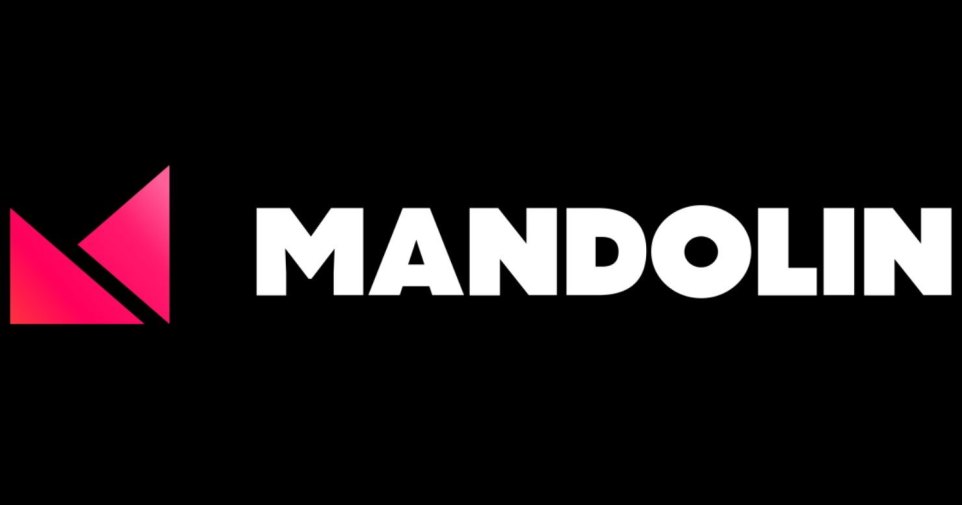Startups shutting down in 2023: Tech startups that closed up shops in Q2 as venture market cools

It is undeniable that 2023 has been a challenging year for tech startups across the globe. The initial optimism that started at the beginning of this year quickly gave way to a daunting combination of banking defaults and Federal Reserve interest hikes, which caused venture capitalists to become more cautious. Unlike the usual startup failures, this year’s shutdowns have been amplified by unfavorable market conditions and a lack of available funding, making it even more difficult for these businesses to weather the storm.
Adding to the woes, startups that managed to secure funding during the boom times of the past two years are now facing a harsh reality. The year 2023 has brought a scarcity of capital, making it increasingly challenging for them to raise funds and keep operations afloat. For some of these startups, the scarcity has led to significant layoffs, while others have been forced to close their doors entirely due to the scarcity of VC funding worldwide.
As such, the number of startups that closed up shop in the first half of 2023 has gone up in the face of a drop in venture funding. The decline in funding since the peak of 2021 has had a severe impact on startups, leaving many private companies facing financial strain and an increased risk of collapse. Global funding saw a substantial drop of 34% from 2021 to 2022, and by the midway point of 2023, the funding had reached a mere $130.2 billion, which is less than a third of the total funding recorded by the end of 2022.
As in previous years, the list of 11 startups that ceased operations in Q2’23 is based on data provided by market analytics firm CBInsights. It’s essential to note that this analysis does not encompass all startup failures that occurred during the specified period.
Saying goodbye is never easy, but here’s a compilation of 11 startups that shut their doors in Q2’23, courtesy of CBInsights.
Tech startups that shut down in 2023
Zume

What it does: Backed by Softbank, Zume ceased operations in June 2023 after an 8-year run. Initially, the startup had ambitious plans to revolutionize the pizza industry by investing $446 million in equipping delivery trucks with robotic pizza-makers and smart ovens, allowing pizzas to be freshly cooked while on the way to customers. However, the venture encountered several technological challenges, including issues with cheese sliding off pizzas, leading to increased expenses and faster depletion of funds compared to revenue generation.
In 2020, Zume pivoted its focus to sustainable packaging development, but unfortunately, it was unable to secure additional funding. As a result, the startup had to shut down its operations altogether.
Founded Date: 2015
Total Funding: $445.69 million in over 5 rounds.
Why it failed: Here’s how Business Insider reported Zume’s shutdown:
“Zume, the robot pizza delivery startup that raised close to $500 million, has shut down, The Information reported…
…Zume had struggled with problems like stopping melted cheese from sliding off its pizzas while they cooked in moving trucks, per Bloomberg. Its difficulties led to a string of high-profile departures and financial problems.”
IRL
 What it does: IRL is an event discovery and planning app. The startup specializes in crafting an event discovery and planning application. The app enables users to explore event calendars within their social circles, sharing their plans through a social platform. Offering personalized event suggestions, the app also facilitates group event participation and discussions among friends across both web and mobile platforms. Founded in 2017 and headquartered in Berkeley, California, IRL attracted a substantial user base.
What it does: IRL is an event discovery and planning app. The startup specializes in crafting an event discovery and planning application. The app enables users to explore event calendars within their social circles, sharing their plans through a social platform. Offering personalized event suggestions, the app also facilitates group event participation and discussions among friends across both web and mobile platforms. Founded in 2017 and headquartered in Berkeley, California, IRL attracted a substantial user base.
However, in June 2023, the company faced a significant setback when evidence emerged pointing to fraudulent user counts. As a result, IRL was compelled to cease its operations.
Despite raising approximately $200 million across various funding rounds and achieving unicorn status in 2021, the startup encountered numerous challenges. A significant expansion in its headcount was followed by a 25% workforce reduction in 2022, signaling deeper underlying issues.
The situation took a turn for the worse when both an SEC probe and an internal investigation uncovered the unsettling truth that a staggering 95% of the app’s reported 20 million active users were, in fact, fake accounts. This revelation dealt a fatal blow to the company, leading to its permanent shutdown.
Founded Date: 2015
Total Funding: $445.69 million in over 5 rounds.
Why it failed: Here’s how TechCrunch Insider reported IRL’s eventual demise: In a headline titled, “Unicorn social app IRL to shut down after admitting 95% of its users were fake,” TechCrunch wrote:
“Last year, IRL laid off 25% of its team, or around 25 employees. During the year prior, IRL had more than tripled its head count, so these cuts came as a surprise.
Around the same time as these layoffs, IRL employees started doubting Shafi’s claim that the app had 20 million monthly active users; then the SEC began investigating whether IRL violated securities laws. By April, IRL’s board of directors suspended Shafi and appointed an acting CEO.”
On its website, IRL said: ” IRL has shut down as of June 27th at 12 pm PDT We thank you for hosting your community chats with us, and we wish your community great conversations on other platforms moving forward.”
Vedere Bio II

What it does: Vedere Bio was a pioneering ocular gene therapeutics startup but bid farewell in April 2023. The startup had ambitious goals of combating vision loss and restoring eyesight for individuals affected by genetic and non-genetic conditions. With total funding of $77 million, Vedere Bio II initially showed promising results in mouse models during the early stages of its research.
However, the preclinical data fell short of the desired efficacy criteria, forcing the difficult decision to shut down the company. Vedere Bio II ceased its operations in March 2023. Based in Cambridge, Massachusetts, the startup was established in 2020 and focused on developing ocular gene therapies.
Founded Date: 2020
Total Funding: $77 million
Why it failed: Here’s how Fierce BioTech reported IRL’s eventual demise: In a headline titled, “Vedere Bio II, unable to replicate past work that led to Novartis acquisition, closes up shop,” the biotech news outlet wrote:
“Opthamology-focused gene therapy biotech Vedere Bio II, the successor to a Novartis-bought biotech that was scooped up in 2020, is closing up shop after failing to impress in preclinical studies.
‘Based on the results of those studies, we made the difficult decision to discontinue our efforts,’ co-founder Cyrus Mozayeni, M.D., and Chairman Kevin Bitterman announced in a statement posted on the company’s website Friday.”
Fuzzy

What it does: Fuzzy is a San Francisco-based subscription-based pet healthcare company that provides comprehensive services for dogs, cats, kittens, and puppies. Their offerings include nutrition, dental hygiene, stress management, prescription medicine, and virtual veterinary care, all accessible from the comfort of any convenient location. Established in 2016, Fuzzy has been dedicated to keeping pets healthy and happy through its innovative and convenient healthcare solutions.
Founded Date: 2016
Total Funding: $75.18 million from over 6 rounds
Why it failed: Here’s how Coverager reported Fuzzy’s eventual death: In a piece titled, “San Francisco startup Fuzzy shuts down after raising $80 million,” Coverager wrote:
“Fuzzy, a vet care startup founded in 2016, is no longer active. Its site and mobile apps have been taken down and the LinkedIn and Twitter profiles of its CEO and co-founder Zubin Bhettay no longer exist.
As one former employee wrote – via Glassdoor – the business model was not economically viable, and the company could not scale. Tweets suggest a daunting situation for former employees and vendors.”
Buzzer

What it does: Buzzer, a mobile live sports streaming startup based in New York, New York, offers sports fans a personalized and immersive experience by providing live sports discovery and the ability to explore live moments. Founded in 2020, the company gained support from renowned sports stars such as Michael Jordan, Naomi Osaka, and Wayne Gretsky.
Their consumer app allowed fans to stream short-form clips from sporting events for 99 cents, catering to evolving consumer preferences and market dynamics. However, at the end of June 2023, Buzzer made the difficult decision to shut down its mobile app and pivot towards licensing its technology to other streaming platforms. Unfortunately, the shift did not yield the desired results, leading to the eventual closure of the startup.
Founded Date: 2020
Total Funding: $32.5 million from over 4 rounds.
Why it failed: Here’s how Front Office Sports reported Buzzer’s shutdown: In a headline titled, “Buzzer, the Gen Z Sports App Backed by $44 Million, Shutters,” Front Office Sports said:
“Buzzer, the streaming startup backed by Michael Jordan, Kevin Durant, and other stars, announced Friday that it would shut down.
On May 19, Buzzer shut down its consumer app and announced it was becoming a technology provider for businesses to license its streaming product. The shift from B2C to B2B didn’t work.
‘As of today and with a heavy heart, we are formally winding down our operations,’ Buzzer said. ‘Recent fundraising developments and market dynamics have informed this outcome, despite our very best efforts to continue building Buzzer.’”
Cana Technology

What it does: In May 2023, Cana, a groundbreaking molecular beverage printer startup, made the unfortunate decision to close its operations. The company’s flagship product, the Cana One, was designed to cater to users’ unique preferences, allowing them to create personalized beverages like low-sugar iced tea or low-alcohol mimosas. This innovative concept captured the attention of investors and brand partners, leading to a successful $30 million seed funding round in 2022. Additionally, renowned actor Patrick Stewart joined as a brand ambassador earlier in the year.
Despite the initial promise and early successes, Cana faced a significant setback when it was unable to secure the necessary funding for manufacturing and shipping the Cana One device. This financial obstacle ultimately led to the unfortunate closure of the startup.
Founded Date: 2019
Total Funding: $30 million from over 2 rounds.
Why it failed: Here’s how The Spoon reported Buzzer’s shutdown: In a headline titled, “Cana, The Startup Building a Make-Any-Drink Beverage Printer, Shuts Down,” The Spoon, wrote:
“According to numerous Linkedin posts from previous employees, the company could not secure funding and laid off all of its employees last week. Cana, which had raised $30 million in January last year, promised to have the product ready to ship sometime this year. But despite having a working prototype and brand partners in place, Cana could not raise the funding necessary to build a production line for manufacturing and shipping devices.”
Wyre

What it does: Known as a crypto on-ramp, Wyre is a cryptocurrency infrastructure platform founded in 2013 by Giannaros and Michael Dunworth. The platform plays a vital role in helping users convert dollars into cryptocurrencies or swap one digital asset for another, while also supporting corporate customers in adhering to know-your-customer and anti-money laundering regulations.
With a diverse range of services, Wyre offers payment solutions for cryptocurrency applications, payout infrastructure, and more. Previously known as snapCard, the company is headquartered in San Francisco, California.
In June 2023, Wyre made the unexpected announcement of winding down its operations. Originally founded in 2017, the startup enjoyed rapid growth, raising $28 million amid the flourishing crypto space. Their success culminated in April 2022, with a $1.5 billion acquisition deal by payments company Bolt Financial, aimed at developing digital checkout solutions. Unfortunately, Bolt Financial abandoned the deal in September of the same year. While the crypto market subsequently experienced various high-profile bankruptcies and regulatory scrutiny, Wyre attributed its closure to market conditions rather than regulatory pressures.
Founded Date: 2013
Total Funding: $27.54 million from over 14 rounds.
Why it failed: In a blog post, the startup made this unexpected announcement:
“After nearly a decade, Wyre is winding down. Due to market conditions, we made this decision to protect the best interest of our key stakeholders and customers. This decision is not due to any regulatory agency direction.
Wyre continues to secure customer assets. If you have assets on the Wyre platform, you can continue to withdraw them via Wyre’s dashboard until Friday, July 14th.”
Summation Bio

What it does: Summation Bio is a biotech startup specializing in gene transfer technology for delivering large-sized DNA and RNA to multiple cell types. Unfortunately, Summation Bio ceased operations at the beginning of June 2023. The company’s innovative mini-nucleosome technology had immense potential, enabling regulated and safe DNA/RNA/RNAi delivery, gene/base editing, antibody delivery, targeted tumor therapies, and tissue regeneration. Founded in 2018 and headquartered in Somerville, Massachusetts, Summation Bio aspired to develop non-viral gene therapies for various diseases.
Throughout its journey, Summation Bio secured approximately $25 million in funding to support its endeavors. However, as research and development efforts progressed, it became apparent that the therapies wouldn’t deliver the expected results, ultimately leading to the closure of the company.
Founded Date: 2018
Total Funding: $25 million from over 3 rounds.
Why it failed: Here’s how Boston Business Journal reported Summation Bio’s final death. In a piece titled, “RA Capital-backed gene therapy startup Summation Bio shuts down,” Boston Business Journal wrote:
“A Cleveland-based biotech senior program director at Summation, Chris Hanff, posted on LinkedIn last week that the startup was ‘over as quickly as it began,’ citing ‘circumstances insurmountable’ — that is, the science just didn’t pan out.
‘Despite all-out effort and error-free execution, the science, this time, was elusive,’ Hanff wrote. ‘Acceptance that we did all that we could means not anguishing about what could have been. Acceptance to stop looking at the past and instead look forward.’”
Seeker Biologics

What it does: Seeker Biologics is a spinoff of 5AM Venture with a primary focus on biologics for autoimmune, allergic, and inflammatory diseases. Unfortunately, the startup ceased its operations in April 2023. Previously known as Fleet Therapeutics, the startup initially secured $24 million in funding, valuing the company at $74 million in 2021. Regrettably, the company was unable to achieve its drug discovery objectives, leading to its closure.
Although specific reasons for the decision were not officially disclosed, insights from former employees shed some light on the internal challenges that contributed to the outcome.
Founded Date: 2019
Total Funding: $24.1 million from over 3 rounds.
Why it failed: In a LinkedIn post, a former Seeker VP and head of biology wrote,
“It can be challenging to witness a talented team dedicated to discovering new medicines fall short of their ambitious goals in a demanding market. However, science doesn’t always take us in the direction we expect, nor does it adhere to our timeline. Yet, it can lead us to exciting new discoveries, inspiring us to keep pursuing breakthroughs with renewed vigor.”
Tessera

What it does: Tessera, a pioneering NFT trading platform based in New York, offers a unique approach by enabling the trading of NFT assets in smaller fractions. Their platform divided NFTs into digital pieces, which could then be distributed or sold as constituent parts of a whole NFT. The fractions themselves were represented by fungible standard tokens, allowing seamless transactions and trading on decentralized exchanges or marketplaces. Founded in 2021, Tessera sought to revolutionize the NFT space with its innovative concept.
However, in May 2023, Tessera made the difficult decision to bid farewell to its operations, despite raising $22 million from Paradigm and other investors. In a Tweet announcing the closure, co-founder Andy Chorlian cited the company’s organizational structure and financial situation as key factors in the decision. He also revealed that Tessera would be shutting down Escher, a digital fine art marketplace project in their portfolio, as the company lacked the necessary time and resources to scale it profitably. The closure marked the end of Tessera’s ambitious venture in the NFT space.
Founded Date: 2021
Total Funding: $22.34 million from over 4 rounds.
Why it failed: In a piece titled, “Paradigm-Backed NFT Ownership Platform Tessera is Shutting Down,” Coindesk wrote:
“Tessera, a protocol that enables collective ownership and governance of non-fungible tokens (NFTs), is winding down its operations over the next few weeks, co-founder Andy Chorlian tweeted on Friday.
Chorlian, who co-founded the company alongside Nejc Krajnik in 2021, said that the decision was made after ‘carefully analyzing possible market scenarios, our company structure and our financial situation.’”
Mandolin

What it does: Mandolin is a music live stream platform that emulates live experiences with different options for artists, venues, and fans. Its platform facilitated ticket booking, payments, and other services to ensure an engaging and immersive experience. Unfortunately, Mandolin ceased operations in April 2023.
Founded in 2020 in Indianapolis, Indiana, at the onset of the pandemic, Mandolin initially experienced success by bridging the gap in live entertainment during lockdowns. As pandemic restrictions eased, and in-person shows resumed, the startup adapted to the changing landscape. To stay relevant, Mandolin diversified its offerings by launching a range of digital services that complemented the concert experience. These included ticket sales, food and merchandise orders, and even meet-and-greets.
Despite these efforts, Mandolin announced its closure just one year later, marking the end of its venture in the music live-stream industry.
Founded Date: 2020
Total Funding: $22 million from over 4 rounds.
Why it failed: In a piece titled, “Livestream Platform Mandolin Shuts Down After Three Years,” Variety described the death of Mandolin as follows:
“Mandolin, a live-stream concert platform that thrived after COVID-19 put a pause on in-person experiences, quietly closed its doors on Monday amid the resurgence of live touring and concerts…
…On April 19, the company uploaded a short statement to its website and social media, providing little context as to what led to the abrupt closure.
‘After three incredible years, we are sad to announce that Mandolin will no longer be offering the digital fan experiences you’ve come to love,’ the statement reads.”
Before its death, Mandolin also shared the sad news on its website. The startup wrote:
“Hi there! Sadly, as of Monday April 17th, 2023, Mandolin will no longer be offering the digital fan experiences you’ve come to love. We’d like to sincerely thank every fan that supported their favorite artist’s livestream, digital meet & greet and fan page on our platform; doing so helped create a more authentic ecosystem for fans and artists alike.
While Mandolin can no longer be the platform to support these special kinds of experiences, we sincerely believe in the power of fans to uplift the entire music community for the better. We know you came here for a livestream, but please consider redirecting the money and attention you would have paid to see a stream here to buying your favorite artist’s latest vinyl, merch or tour ticket on their channels of choice!
If you’re here to request ticket refunds or pull down items from your Mandolin Wallet, check the email you used for your Mandolin username for more information on how to complete that process. You can always reach out to us at help@mandolin.com as well.
Thank you for three incredible years!”





